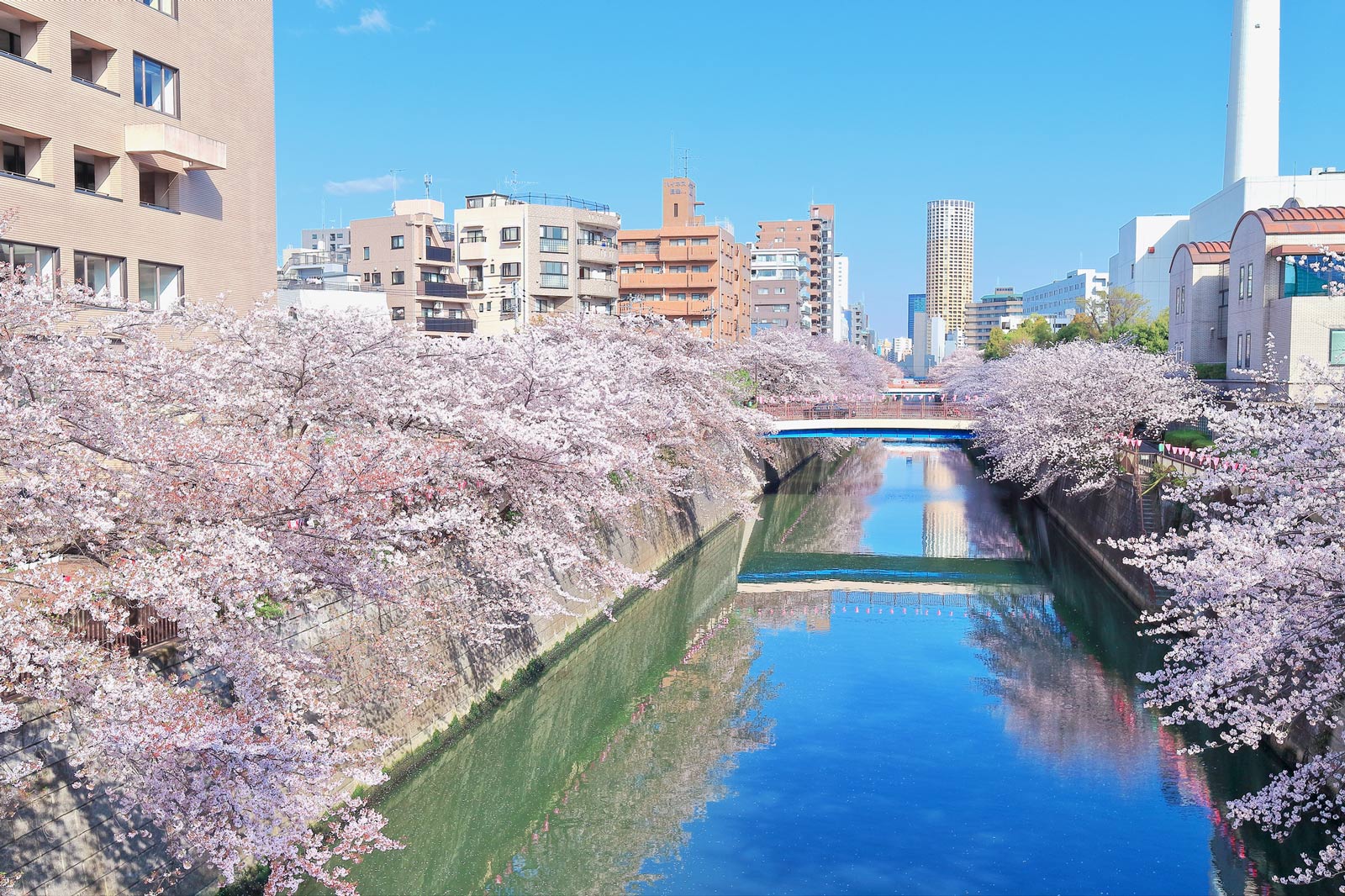Expats guide to renting an apartment in Tokyo
So you have the job in Tokyo and you now need to find a place to live. Your company may be able to assist you if they are already well established in Japan but this post is for expats who are moving to Tokyo to work and need to research and find a suitable place to live.
At apts.jp we focus on quality and convenience for people planning to rent for 1 year or more so if you are here for just a few weeks then this post may not be for you but if you are making a move to work in Japan for at least 1 year then please read on.
Expat population of Japan
The total population of Japan as of 2019 is 126 million. Due to a very high post war birth rate and the current low birth rate the overall population of Japan is declining. From the current 126 million, the projections show that by 2045 the population of Japan will be just 106 million. That is close to a 20% decline.
Awareness of this and the associated problems – i.e. the cost and practicality of caring for the elderly, has been there for many years and consequently immigration is encouraged.
Because of this the foreign population is increasing fast – unsurprisingly the majority of the influx is care workers – largely from within Asia – particularly Vietnam and the Philippines.
However – the total expat population of Japan is still less than 3% of the overall total so compared to most other countries in the world Japan feels mono-cultural.
Even moving to central Tokyo you will immediately notice that you are part of a minority group. This feels exciting and as though you are really experiencing something new and different to your life back home.
This table shows the breakdown of the expat population of Japan by nationality:
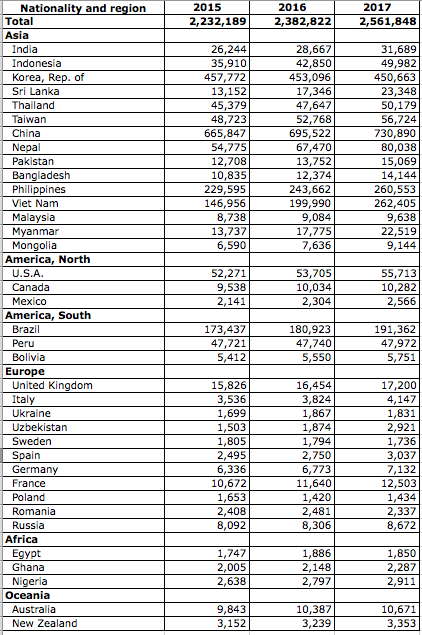
Source: Japan Statistics Bureau-https://www.stat.go.jp
This chart shows the population of North & South American expats living in Japan:
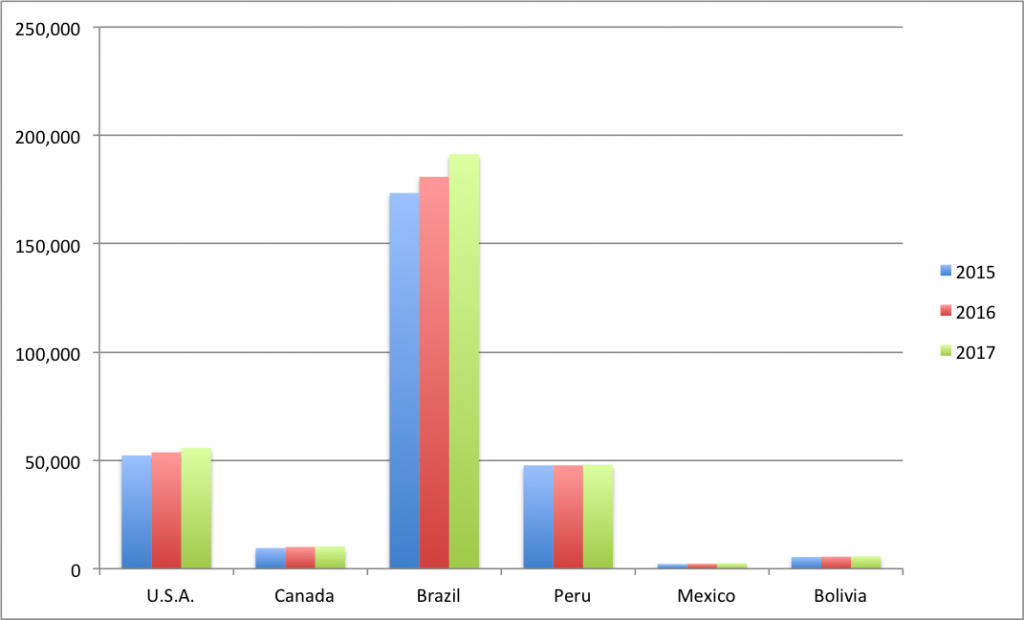
This one shows the number of expats from European countries living in Japan:
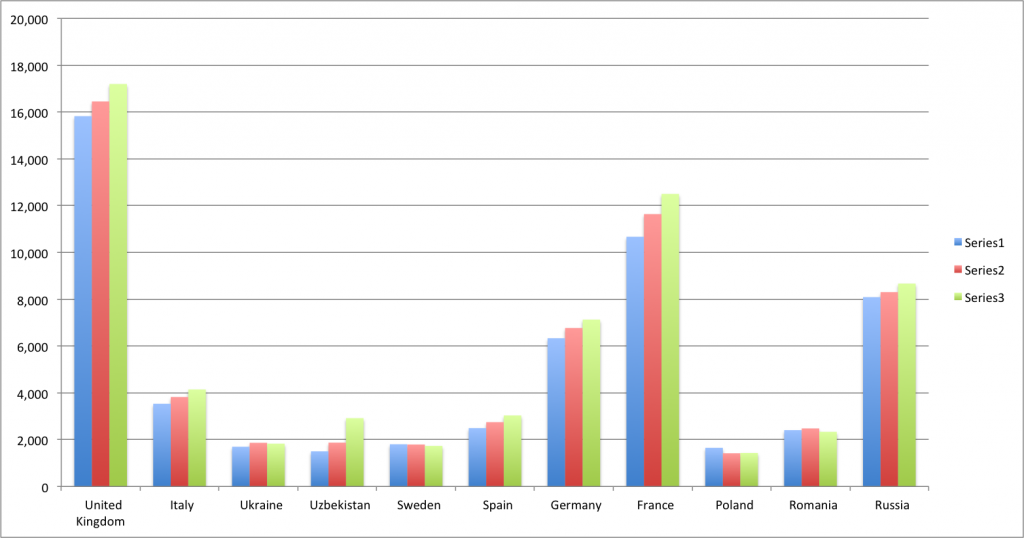
The European expat population is still low in Japan. I am British and still get excited to meet a fellow Brit in Tokyo. As you can see the population of European expats in Japan is growing fast.
How about the Aussie & Kiwi expat population?
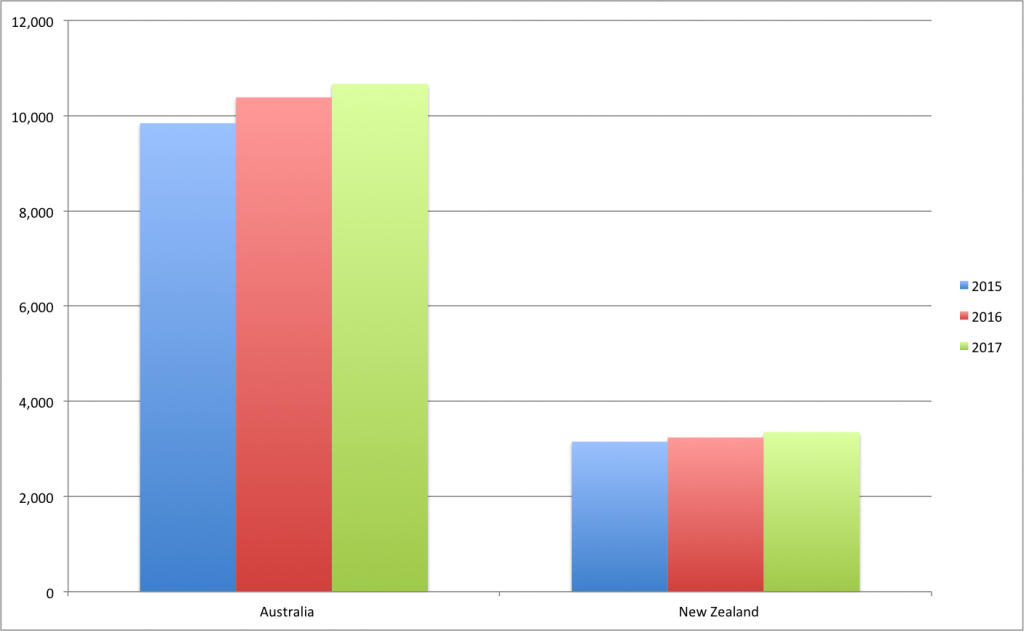
Again – both are growing.
There are still few African expats in Japan but likewise the populations are increasing:
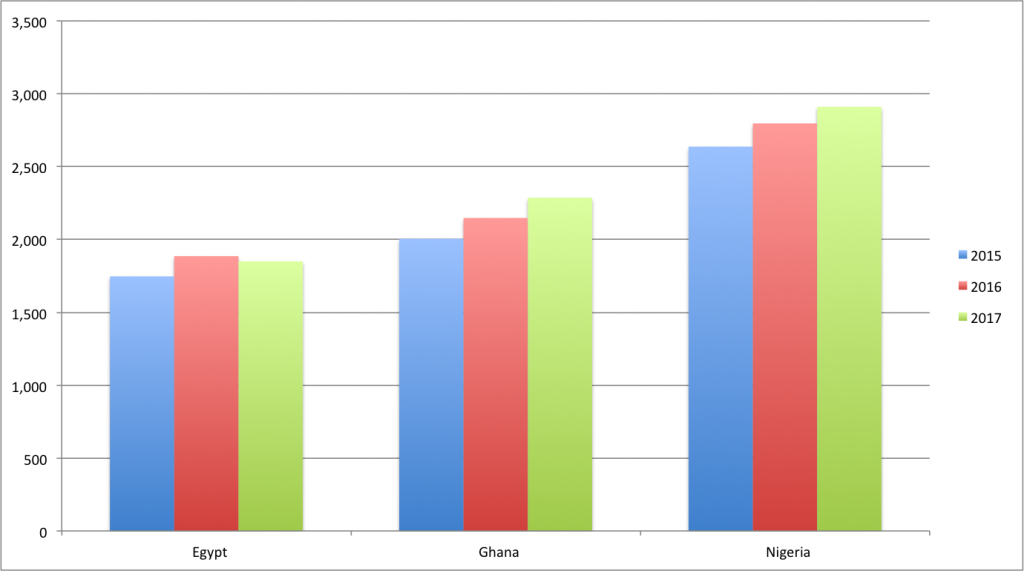
Finally – Asia. There are lots of Chinese and Korean expats in Japan, mainly due to the proximity to home but as mentioned above migration of expats from other countries in Asia to Japan is increasing very rapidly – with the exception of from Korea:
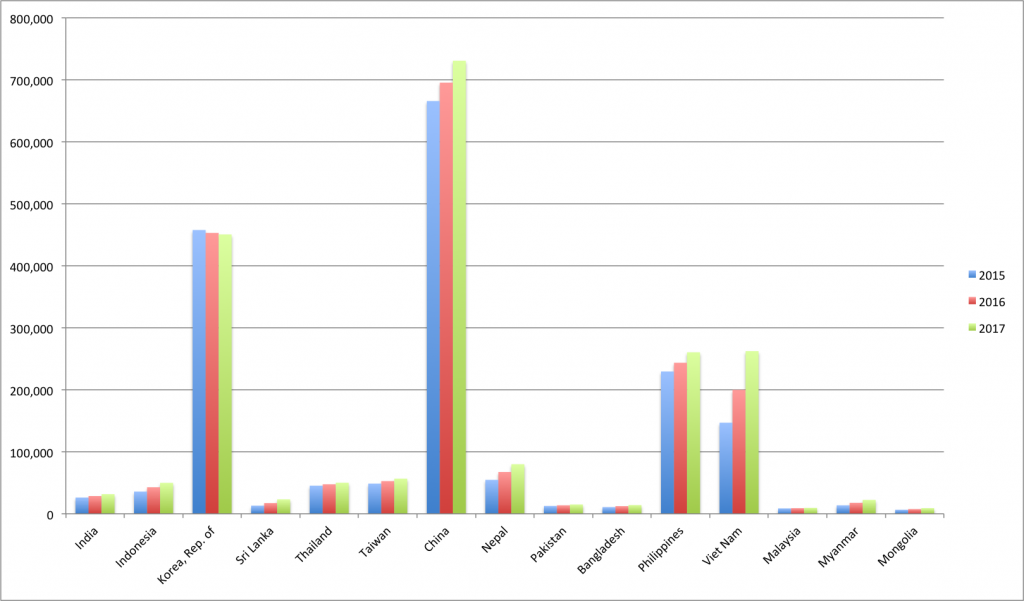
What does this all mean to your new life in Tokyo?
It means that you may stand out and be treated a little differently due to your physical appearance, it means that you will need to learn to speak Japanese in order to communicate with 97% of the population around you and it also means that the infrastructure and ease of getting settled in Japan for expats is still in it’s infancy.
At apts.jp we are all bilingual and focus on helping expats with renting an apartment in Tokyo to live in that suits their interests and lifestyle.
Housing in Tokyo compared to America, Australia, Europe and other parts of Asia.
If you have travelled a little around Asia, you will be happy with the quality of apartments, flats and houses in Tokyo and used to the size. Housing in Tokyo is similar in size to Singapore, Hong Kong, Major Chinese cities and Malaysia. The closer you live to the Yamanote Line (circular train line around central Tokyo) and also inside it, the more expensive the housing will be. Most people working in Tokyo spend around one hour commuting to and from work each day which is similar to people living in other large cities like London. This can be stressful so we help our clients to find apartments as close as possible to their place of work or expected place of work.
If you are coming from Australia, America or Canada, accommodation will seem much smaller than you are used to but on the upside this means that your living space is easier to take care of 😉
Many apartment buildings do not allow pets or smoking indoors because of the impact of the smell on the property. You may face difficulties finding a room that is a pet-friendly.
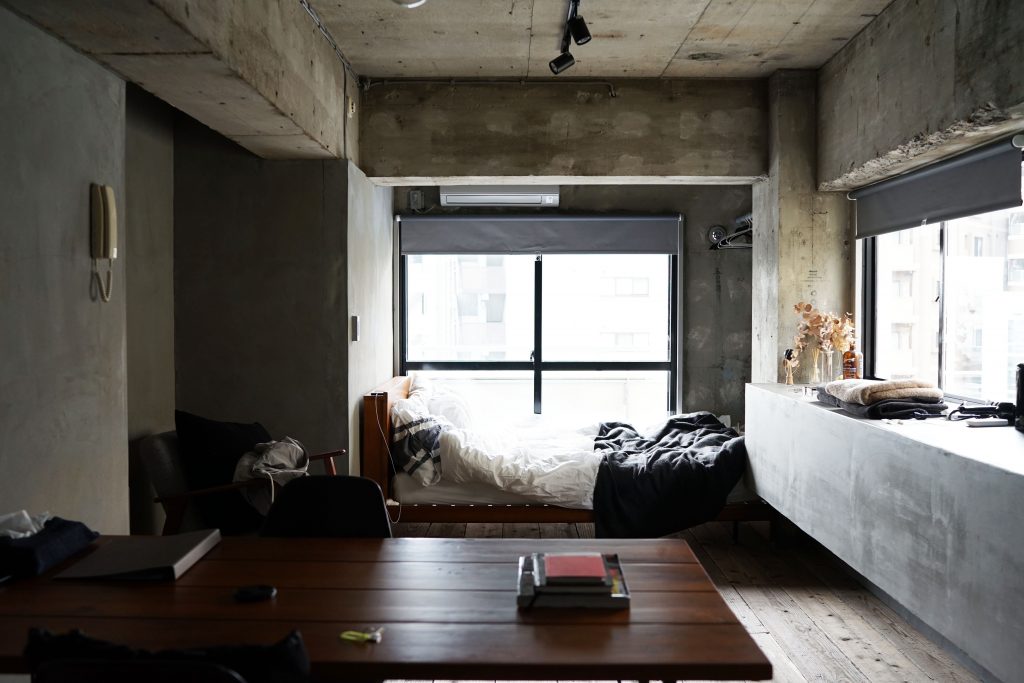
Flat, apartment and house hunting in Tokyo
The search for a property in Tokyo can be relatively fast – In general Japanese real estate agents are very organised and focused on helping you to find what you need.
It typically takes us 4-5 weeks from first speaking with a client to them receiving the keys to their new apartment.
All real estate agencies in Japan access the same national databases. With the exception of exclusive listings for a few luxury apartments, you can get the same apartment information from any agency.
That being said, everyone needs to know that you have only 1 chance to apply to an apartment. Once your application is processed by the property manager (not the real estate agency), and if by chance, you are rejected, you can not ask another agency to reapply to the same apartment.
The process is that your real estate agent will submit an application on your behalf to the property manager who will discuss it with the building owner and make a decision. If you are rejected by the property manager you do not have an opportunity to strengthen your application or clarify your details which can mean that people miss out on their perfect place simply due to poor planning by the real estate agent.
At Apts.jp when we apply on your behalf, we build the strongest case for the property manager to accept you. We work with our clients on a personal level to find them lifestyle-enhancing apartments in Tokyo!
There are no open viewings in Tokyo so you do not need to queue to look at an apartment. Your estate agent will collect the keys for the property you have chosen and either drive you to see it or take you there by public transport. Taking the subway or Tokyo Metro to see an apartment is a good idea. You can check how far the apartment is from the train station or office.
Where to start your search?
If you have started your search for renting an apartment in Tokyo via the internet you may have found that after finding a property that you like, when you call the agencies to discuss it it is no longer available.
This is a common trick that some estate agencies use to get leads. At apts.jp we do not do this – everything you see on our website is live and available, our focus is on trust and not wasting our clients time.
It is best to find an agency that you trust first, discuss your needs and then ask them to help you find the right place. They will then be in a position to let you know quickly as appropriate places become available and if things are all set up properly then you should be able to move quickly.
What you need in order to get started
In order to apply for an apartment in Tokyo, the following items are required. To submit applications it may take time to prepare, so we recommend that you ready them as soon as possible (ideally, you would have these prepared before applying to apartments to expedite the application process):
- Personal ID Photocopy (Residence Card, Japanese Driver’s License, Passport Photocopy)
- Letter of Employment (在職証明書)
- Income Statement Photocopy (if your Letter of Employment does not state your salary)
- Emergency Contact (needs to be fluent in Japanese)
Other requirements that you may need to prepare:
- Proof of Residence (住民票 jyuminhyo) – If you already have an address in Japan
- Guarantor/Co-signer (needs to be employed and fluent in Japanese; in some cases, must be Japanese)
- Health Insurance Card Photocopy
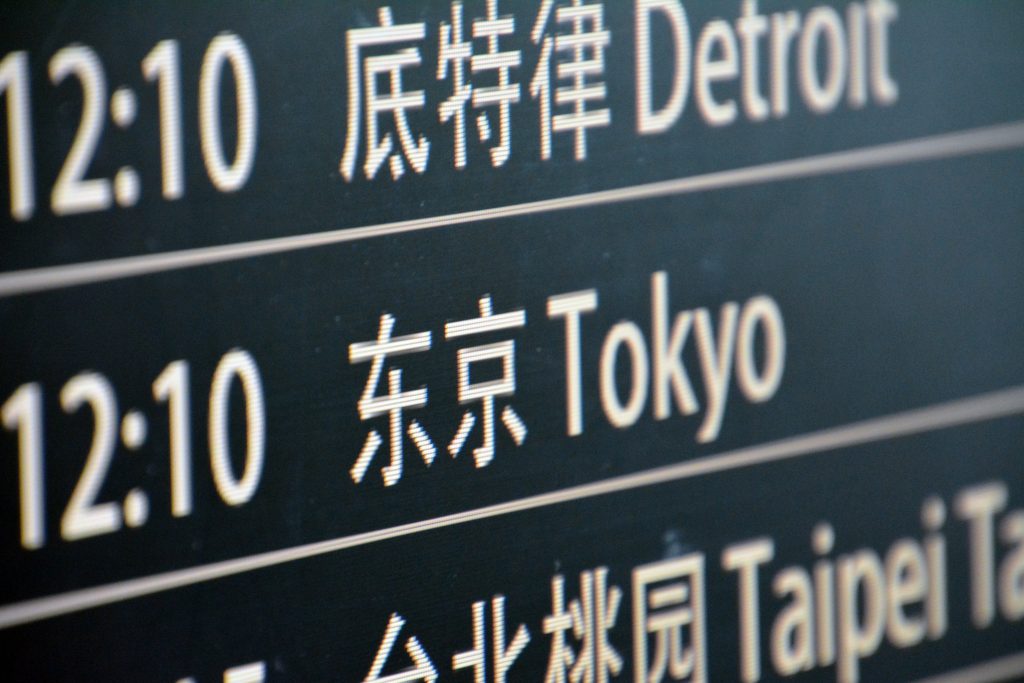
The screening process
Once you have found an apartment that you like and applied you will go through a screening process.
Two factors affect how landlords and property managers set up the screening process.
First, Japan does not have a credit score to cross reference your eligibility to rent.
Second, Japanese real estate regulations make it next to impossible for landlords to evict tenants if the contract is a standard lease (as opposed to fixed-term lease); and most properties on the market are standard leases.
To mitigate risk for landlords, property managers may ask many personal questions that could seem irrelevant to the rental process
What to expect
Each landlord / property management company will have different criteria, but overall, we’ve found that submitting financial statements or a letter of employment that shows a stable source of income is the biggest factor for assessing your eligibility.
If your monthly salary is not 3 times the rent, the likelihood of passing screening is very low.
In the case that you don’t have financial statements, your letter of employment must state your job description, job title, and monthly or annual salary.
If you are a business owner, freelancer, or a student, the required documents are different. Please contact us and we will find the best solution for your circumstance.
Another big factor is your Japanese proficiency. It has become more mandatory that tenants sign up to a guarantor company, so expect a call from them inquiring about your background once your application has been submitted. (Some are very professional and polite; others, very rude and unfriendly. In either case, keep your composure.)
If the apartment you choose has this Japanese proficiency requirement, the guarantor company will assess your level when they call you.
There are instances of property managers refusing to rent to expats but we pre-screen most of the properties that we list so this is unlikely to happen.
Once you have found a new apartment in Tokyo
If your application is approved, you can move on to the final contract process. If you can’t read Japanese, we will review the terms and conditions of the contract together.
You will need an inkan for the signing- please ask your agent whether it has to be a registered seal. Also, at this time, you will need to have opened a Japanese bank account to pay the initial move-in costs.
The key things that you will need are:
Mobile Phone
For mobile phones, you can go to any of the major carriers (NTT Docomo, AU Mobile, Softbank Mobile), but if you have your residence card and a credit card, IIJmio or Y Mobile have the best deals. For IIJmio, you can go to a BIC Camera and register there, or if you can read Japanese, you can register online.
Inkan (signature seal/stamp)
If you plan to stay 2 years in Japan, definitely buy an inkan, because having one will make your life a lot easier. Figure out how you want your last name spelled (hiragana, katakana, or Roman alphabet).
Usually, it only costs 3-4,000 JPY to make, but it will depend on how many letters there are in your name. It normally takes 4 hours to make, but for an extra fee, some places like Hanko21, will make it immediately.
If you stay more than 2 years, buy 3 inkans. First one for stamping non-contract documents, 2nd one for bank accounts, 3rd for contracts (this one needs to be registered at your local ward office and once registered, it’ll be your official seal “jitsuin”.
Bank Account
Opening an account at Mitsui Sumitomo Bank, Mizuho Bank, Mitsubishi UFJ Bank, or Japan Postal Yucho bank is best.
All business transactions revolve around those 4 main institutions, but to apply, you need an inkan “signature seal/stamp”, residence card with registered address, and passport.
The registration is all in Japanese, so having a friend to help translate will come in handy, or just ask us 🙂
Other options with English registration are Prestia (SMBC Trust Bank) and Shinsei Bank.
One thing you should make sure with your bank (in your country of origin) – and prior to your arrive in Japan – is to release the transfer limit for international fund transfers. Initial costs are pretty hefty.
Shopping
Your new flat will be completely empty if you select an unfurnished apartment and fully renovated with new wall paper, freshly polished floors, clean carpets (if available) and perfectly clean. We will will provide you with English translations of any electronic fixtures such as air conditioner or automatic door camera if necessary.
Tokyo apartments do not usually come with any white goods such as refrigerators or washing machines so you must buy those. They may also not have any air-conditioning or heaters so be sure to check this when you look around. Curtains and window covers are also not typically provided.
Please be mindful that you will need to arrange for removal of all of these items when you leave or move. Your real estate agent will be able to recommend places for you to shop and can help you organize delivery depending on the service offered.
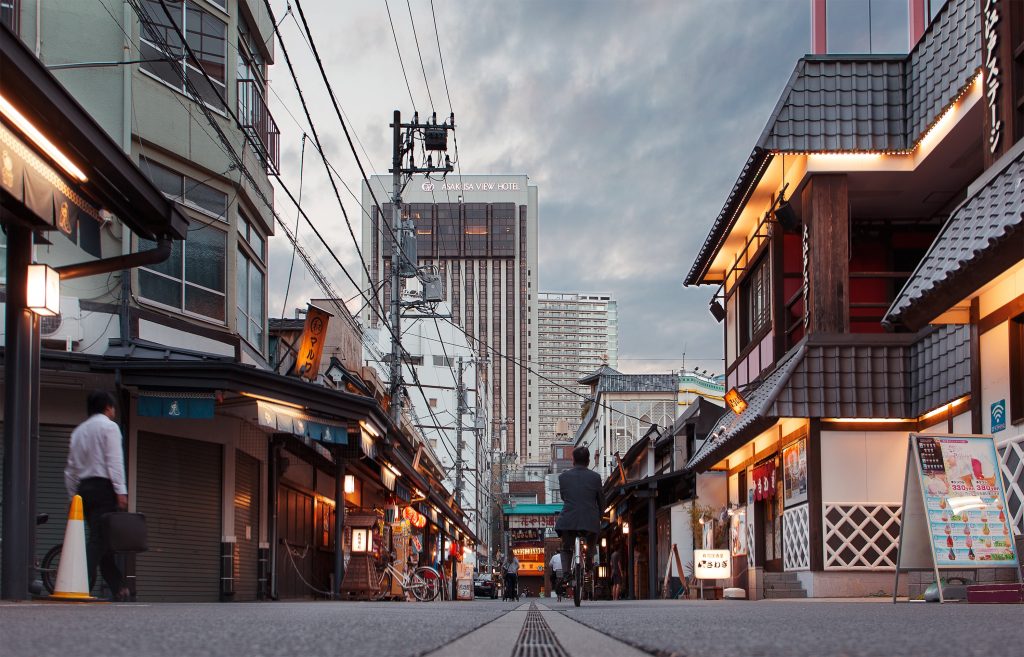
Moving into your new apartment in Tokyo
We ensure that your move-in is as smooth as possible and take care of the following for you:
- We run an Apartment inspection prior to moving in; taking photos of any pre-existing damage
- Utilities setup (gas, water, and electricity) & Internet setup
- Assistance with registration at city hall
- Appliance purchase guidance
- Furniture rental support and Arranging movers
- Apartment guide English translations (appliances, rules, trash days, etc.)
- Much more!
If you ever have issues with your apartment, just contact us! Our support for any rental-related issue is available for the duration of your rental contract.
